Marseille soap
CONTENTS
Marseille and its soap, more than 800 years of history
Marseille soap: white, cream or green ?
The making of authentic Marseille soap
How to recognize real Marseille soap ?
The benefits of Marseille soap for the home
The benefits of Marseille soap for the body, face and hair
Our Marseille soaps at Penn'Ty Bio
For more than 800 years, the city of Marseille has been the cradle of the production of natural soap based on olive oil. In the 12th century, the town already had several soap factories, produced from oil extracted from olives harvested in Provence and natural soda from plants in the saline environments of the Camargue. Its specific climate is also conducive to drying soaps, with its heat and its wind, the famous Mistral. Marseille soap then enjoyed a strong reputation, which has still not disappeared to this day.
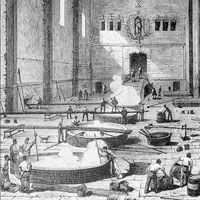
In 1373
In 1371, Crescas Davin was the city's first official soap maker. The first industrial factories appeared in the 15th century and quickly exported to Europe and the Mediterranean basin, benefiting from the geographical openness of the city and its historic port activity. Marseille soap is then marketed in the form of green bars of 5 kg or more. Marseille soap gained its reputation from the 16th century.
In 1688
The city of Marseille had 7 soap factories in 1660. To support the development of this industry, Louis XIV decided, by an edict from his minister Colbert in 1688, to regulate the manufacture of soap and its constituents. "We will not be able to use the soap factory, with the barrel, soda or ashes, of any fat, butter or other materials; but only pure olive oils, and without mixture of fat, under penalty of confiscation of the goods." And to guarantee an optimal level of quality, production will have to be interrupted during the 3 summer months, due to the extreme heat. At the beginning of the 17th century, production could barely satisfy the demand of the city and its surroundings. Under Colbert, the quality of Marseille production was such that Marseille soap became a common name. In 1789, Nicolas Leblanc developed a process to produce superior quality soda.

In 1812
The number of Marseille soap factories amounts to 62. Napoleon, sensitive to the benefits of traditional Marseille soap, adopted a decree on December 22, 1812 defining a particular brand for soap bricks, "with a pentagon in the middle of which will be inscribed these words: olive oil, and subsequently the name of the manufacturer and that of the city of Marseille". The text ended with a warning: "Any individual established in a city other than that of Marseille, who sells soaps bearing the granted mark, will be punished with a fine, the soaps will also be confiscated."
In 1927
At the beginning of the 20th century, the Marseille soap industry, now numbering 90 soap factories, experienced dazzling prosperity, before suffering an initial slowdown during the First World War. The decisions of the Aix en Provence Court of Appeal in 1927 and the Court of Cassation in 1928 redefine Marseille soap as a product made exclusively from vegetable oil, in a proportion of at least 72%. Production recovered in the post-war period, reaching 120,000 tonnes in 1938, thanks in particular to programs linked to mechanization. After a further decline in activity during the Second World War, the Marseille soap industry suffered a sharp decline, hit hard by competition from synthetic detergents.
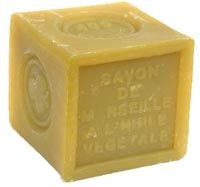
1980
Since the 1980s, Marseille soap has experienced a real revival, in response to the needs for naturalness and authenticity of an ever-increasing number of consumers. And even if today there are only 4 soap factories still in operation in Marseille, demand remains strong. Consumers are rediscovering the virtues of this natural and biodegradable product, an alternative to products derived from the chemical and petroleum industries.
The first Marseille soap was made from an emulsion of oil and soda obtained by the incineration of soda plants (salicornium and kali). With the evolution of industrial chemistry, soda was subsequently obtained by attacking sea salt with sulfuric acid (Leblanc process), and finally by the manufacture of soda with ammonia (Solvay process). .
For technical reasons, olive oil has been replaced mainly by peanut oil.
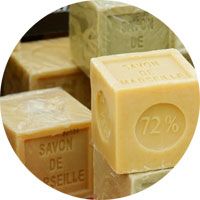
(Real) Marseille soap contains no coloring, no additives, no perfume and no preservatives. If you see anything other than vegetable oils on the label, avoid the product! Real Marseille bread is colored naturally with the vegetable oil it contains.
White
White Marseille soap is made from palm and copra oil (extracted from coconuts). Copra oil is used to provide better foaming power to Marseille soap without adding a chemical foaming agent. White Marseille soap is most often used for laundry. Its neutral color makes it easy to use when removing stains from laundry. You can also choose it to make “homemade” laundry detergent.
Green
Green Marseille soap owes its color to its high concentration of olive oil. More precisely, it is olive pomace oil, that is to say the residue (the pulp and the stones) of the first cold pressing of the olives. The first pressure gives the oil used in cooking, the second, the darker olive pomace oil. Green Marseille soap is traditionally used for hygiene, beauty, linen and home care. You can also make your own dishwashing liquid with green Marseille soap (unlike white soap made from palm oil which risks freezing the dishwashing liquid).
The cream
Cream-colored Marseille soap is also used with olive oil, but it may be less concentrated or cut with peanut oil.
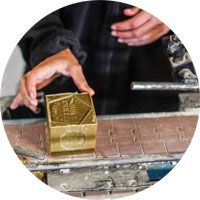
Cooking soap
Fourteen days are needed to make real Marseille soap. The “Marseille process”, or so-called “high heat” cooking:
Step 1 : saponification or “pasting”
It is the transformation of vegetable oils into soap, under the action of soda and heat, in a large cauldron. In a cauldron, the oils or fatty acids are successively loaded under moderate heating and the lye; everything is brought to the boil and the mass transforms into an emulsion.
Step 2 : Release
As soap is insoluble in salt water, this operation consists of adding sea salt in order to draw the excess lye to the bottom of the cauldron. The soap will thus separate from part of the water it contains. The soap paste is washed several times with salt water to remove the remaining soda.
Step 3 : Cooking
The soap cooks for 10 days at a temperature of 120°C, under the supervision of the master soap maker. This operation characterizes saponification and allows the complete transformation of vegetable oils into soap.
Step 4 : Liquidation
This operation ensures the transition from the crystalline structure of the soap to its smooth phase by adding water. Several washes with pure water allow you to obtain an “extra pure” soap, free of all impurities. All of these stages are called “cooking”. A decisive and delicate phase, it requires the full attention of the master soap maker.
The pouring of the soap
This is step 5, called “The pouring of the cooked”
The soap paste is then poured, while still hot (between 50 and 70°C), into the “mises”, gigantic molds, using an articulated wooden channel called a “chute”.
Knowing the ingredients and steps is not enough; only the secret of know-how, passed down from generation to generation, can guarantee the success of the soap.
Despite a specific manufacturing process, Marseille soap does not benefit from a controlled designation, thus allowing numerous deviations.
Drying the soap
Step 6 : drying : The soap dries for forty-eight hours in the open air. On a mistral day, the north-facing windows are open, thus reducing drying time.
Step 7 : Once dry, the soap is cut into 35 kg bars, using a knife pulled by a winch. The loaves are in turn cut in a machine to make blocks of different sizes.
Soap molding
Step 8 : molding: There are two types of marking: hand struck for the bars, or machine molded for the cube. The latter is stamped on all six sides, a sign of recognition of the traditional “Marseille soap”.
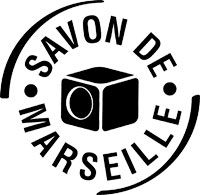
Internationally renowned, the La Corvette Marseille soap that we sell at Penn'Ty Bio is an authentic soap made with respect for tradition. Produced in an artisanal manner, each soap is made from a fatty substance and olive oil. Based on ingredients of natural origin, it contains no colorants, perfumes, preservatives or synthetic adjuvants. It has been made since 1894 at the Savonnerie du Midi, in Marseille, using the traditional manufacturing process of cooking in cauldrons, in order to perpetuate authentic and artisanal know-how.
But currently unprotected, the name “Marseille soap” can be applied to any type of soap, regardless of its geographical origin, method of manufacture and composition. Concerned about protecting traditional Marseille soap, four historic soap factories in Bouches-du-Rhône, including Savonnerie du Midi, decided to join forces in 2011 by creating the Union of Marseille Soap Professionals (UPSM). Its purpose is to promote and defend traditional Marseille soap. To this end, this private association has registered a collective brand which guarantees constant quality, respecting precise specifications :
- Its geographical origin : it must be made in Marseille or in its region, the historic area for manufacturing Marseille soap.
- Its manufacturing process : it must be cooked in a cauldron for approximately 7 to 10 days, according to the five stages of traditional saponification called the "Marseillais process" and scrupulously followed by the Master Soapmaker.
- Its composition : Marseille soap must be composed of vegetable oils exclusively (no animal fat like "sodium tallowate" for example which is beef fat). It is fragrance-free, coloring-free, preservative-free, additive-free. It therefore only includes 4 to 5 ingredients maximum: Sodium Olivate (saponified olive oil), Sodium Cocoate (coconut oil), sodium palmate (palm oil), aqua (water), Sodium Chloride (salt), Sodium Hydroxide (welded).
In 2016, the UPSM decided to present a file to the INPI (National Institute of Industrial Property), so that Marseille soap is recognized by an IGPIA (Geographic Indication for Industrial and Artisanal Products), and that It thus appears in the list of manufactured products soon to be labeled by public authorities. Marseille soap was the first industrial and artisanal specialty to seek this recognition because the law is recent and its last implementing decree was officially published on March 10, 2016. Alongside the UPSM, Savonnerie du Midi is therefore very involved in defending the heritage values of Marseille soap and guarantees these customers compliance with the UPSM charter.
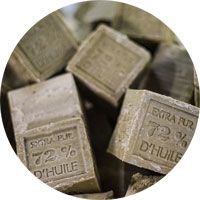
Why do we list 72% oil ?
In 1906, the chemist François Merklen who owned a soap factory in the region set the percentage of vegetable oil in Marseille soaps at 72%, supplemented by soda and water.
He is participating in a bill on the Repression of Fraud in the Soap Trade. In 1928, the Aix-en-Provence Court of Appeal confirmed this composition of Savon de Marseille to defend the reputation of Savon de Marseille and fight against counterfeiting.
In short : this is the guarantee of a minimum vegetable fat content of 72% in the total composition of the soap.
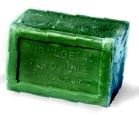
This legendary soap with multiple virtues is fully in line with new consumer trends with its values of naturalness and authenticity. It is the most ecological and healthy alternative to industrial chemicals. Multi-purpose, Marseille soap is perfectly suited to laundry and home care. It is perfect for sanitizing all surfaces in the house. Overview of tips and tricks using Marseille soap.
TO CLEAN
Dishes : Marseille soap is very practical for washing dishes. Rub your sponge on the Marseille soap then polish the dishes. Otherwise, make your own dishwashing liquid: Boil 80 cl of water with 50 grams of Marseille soap shavings while mixing. Turn off the heat as soon as the water comes to a boil. Continue mixing until the soap is completely dissolved. Then remove from the heat and, while mixing, add 1 tablespoon of black soap, 2 tablespoons of white alcohol vinegar, 1 tablespoon of baking soda and finally 1 tablespoon of soda crystals. Let cool and then pour into a container. Tip: if the water in your town is very hard, you can add a little more white vinegar. This dishwashing liquid recipe is used like a commercial dishwashing detergent. Use real Marseille soap 72% vegetable oil, coloring-free, fragrance-free, glycerin-free, olive-based. White, made from palm oil, risks congealing the dishwashing liquid.
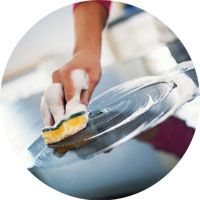
Walls, ceilings : Nothing like Marseille soap to wash and degrease walls and ceilings. Dilute a handful of soap shavings in a bucket of hot water. Wash using a sponge mop and rinse with clean water.
Iron : Regularly clean the iron soleplate that has become dirty or yellow by rubbing a piece of dry soap when the soleplate is slightly warm. Wipe with a soft dry cloth or a ball of newspaper to shine the surface.
Mattress : To keep a mattress fresh and clean, simply pass a washcloth moistened with Marseille soap over the surfaces to be cleaned. Then iron a glove soaked in clean water to rinse and leave to dry all day.
Strollers, childcare equipment : Hypoallergenic, Marseille soap is ideal for maintaining childcare equipment such as strollers. Wash the removable covers in the machine with a detergent made from Marseille soap shavings. For non-removable covers, wash with a sponge dampened with soap. For odorous and stubborn stains, rub with soap and a little baking soda, leave for a few hours to remove the dirt then rinse. Allow to air dry thoroughly.
Shoes : Scrub your shoes using a soft brush (an old toothbrush or a small brush) soaked in cold water and Marseille soap, and let it dry in the open air without rinsing (applying crumpled paper in the sneakers). Cleaning with Marseille soap is preferable for leather shoes or sneakers.
Brushes, makeup sponges : Regular washing will help rid them of dust and makeup residue that has accumulated over time. Gently soap the brushes without crushing them too much so as not to break the bristles (the ideal is to move the brushes back and forth on the cube of Marseille soap). Repeat washing until the water is clear. Dry them with a dry cloth, then turn them upside down so that the brushes return to their original shape.
LAUNDRY CARE
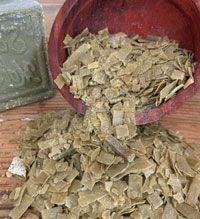
Traditional recipe : Dilute a handful or 20g of shavings in 1L of hot water and stir until a gel is obtained, the detergent is ready for use. Store in a suitable bottle, and shake well before each use.
Stain remover for baby's laundry : By removing stains before washing or in laundry for your little one, Marseille soap shavings are perfect for your baby's skin. Thanks to their hypoallergenic and stain-removing formulation, they are particularly recommended for cleaning baby laundry and delicate laundry. By dissolving the shavings in very hot water, this product is used to make your own laundry. It is a natural and effective alternative to all synthetic detergents. The stain remover tip before washing : I take a few shavings of Marseille soap that I rub on my baby's stained bodysuits, pants and t-shirts.
To remove halos : To erase traces of halos on your clothes, nothing could be simpler. Moisten the garment then rub your cube on the halo. Leave the garment to soak for 20 minutes in very cold water.
Against butter or grease stains : Apply extra pure Marseille soap shavings to your stain. Leave it on for 10 to 15 minutes (a few hours if the stain is old) so that the soap can absorb the grease. Then scrub the stain and rinse with cold water. Then put your garment in the machine on your normal cycle. Our little advice : do not use hot water which will fix the stain in the heart of the fibers of your clothes!
Recipe for stubborn stains : Dilute 100g of shavings in 2L of hot water, add 1 cup of baking soda and ½ cup of white vinegar. Allow to cool and shake well before use.
Stubborn stains : In general, rub dry stains, shirt collars and cuffs with damp soap before washing in the machine or by hand. For tougher stains, proceed in the same way but leave to act for a few hours before washing.
MAINTAIN
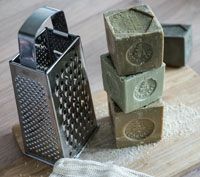
Leather sofa : Coat a washcloth or cloth moistened and well wrung out with Marseille soap then lightly massage the leather using circular movements. Dry with a clean cloth. This cleaning will bring flexibility and longevity to the leather.
Wooden terrace : Regularly rid the terrace of mold, impurities and pollution accumulated over months by washing it with a broom, a basin of hot water and a handful of diluted soap shavings. This simple and effective cleaning will better maintain your terrace over time.
Multi-purpose spray : Grate your olive Marseille soap. In a salad bowl, add 2 tablespoons of Marseille soap, 100 ml of boiling water, 1 tablespoon of baking soda. Mix until the soap is dissolved then leave to cool. Then pour it into a spray bottle.
Home or garden tools : Broom, brush, mower, rake, dibbler, etc. Plastic, metal and wooden tools love Marseille soap.
For the maintenance of plastics : Wet a sponge or microfiber cloth. Place Marseille soap on top. Wash the plastic parts of tools or accessories (lawn mower, trash can, etc.). Rinse and dry with a dry cloth.
For metal maintenance : Wet a sponge or brush. Place Marseille soap on top. Wash the metal parts of the tools. Rinse and wipe the metal with a dry cloth.
For wood maintenance : Wet a sponge or brush. Place Marseille soap on top. Wash the wooden handles of the tools. Rinse and dry the wood with a dry cloth. Marseille soap helps soften the rough appearance of the wood.
TIPS
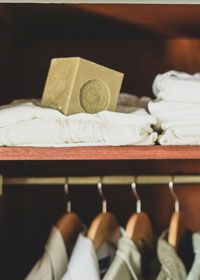
Against aphids : Rather than using pesticides to get rid of aphids in your garden, Marseille soap represents an interesting ecological alternative. Dilute 2 tablespoons of finely grated Marseille soap shavings in a spray bottle and mix. Spray your natural aphid repellent directly on your plants, preferably at the beginning or end of the day. With this insecticide your plants and the environment will thank you! Repeat if necessary, but in general, 2 to 3 treatments will be sufficient. A safe, ecological, economical and fast solution that really works.
To keep moths away from clothes : Inside and outside the wardrobe or your cupboards or drawers, Marseille soap can help protect and keep moths away from your clothes. To do this, slip the Marseille soap into the drawers or into your clothing pockets, into your laundry piles, between the sheets...: the natural and very particular smell of Marseille soap helps to repellently ward off clothing moths.
Remove fogging : To combat fogging of your mirrors, glasses...simply pass a small piece of Marseille soap on the surfaces and wipe with a clean cloth. Repeat this tip every month.
Erase the mark of a hem : To remove the mark of a hem, rub Marseille soap on the surface, place a piece of tissue paper and iron with a hot iron.
Unblocking a zipper : To unblock your zipper, use a piece of Marseille soap and rub the notches of the zipper.
Unlike conventional shower and bath products, Marseille soap is made entirely from natural products. It is a product obtained from the transformation, under the effect of heat, of a mixture of vegetable oils with caustic soda. It contains no preservatives, no colorings, no animal fats, nor any petrochemical product, but only vegetable oils. A hypoallergenic formula based on exclusively vegetable oils recommended to limit the risk of allergies and therefore often praised by health professionals. Through a dual cleansing and purifying action, Marseille soap helps to partially eliminate any pathogenic flora while protecting and softening the skin.
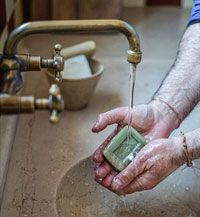
Daily cleansing : Marseille soap is vegetable and does not attack sensitive skin. You can use it regularly then rinse with clean water. It is a natural, gentle and hypoallergenic product. Marseille soap is highly recommended for oily and acne-prone skin. It can be used to deeply cleanse the skin and regulate sebum. In addition, it is possible to wash the entire body with Marseille soap. People with sensitive skin can also use it for daily cleansing.
For shaving : The traditional manufacturing technique preserves the moisturizing glycerin which is generated during saponification (cooking in a cauldron). Marseille soap does not dry out the skin, making it essential in the bathroom, used by women to remove hair and by men to shave.
For men : Wet skin with clear, lukewarm water. Wet your shaving brush and rub it on the cube of green Marseille soap with olive oil to obtain a creamy foam. Apply the creamy foam to the skin by gently passing your shaving brush over your beard. Then proceed to the manual shaving stage according to your habit. Eliminate the foam by rinsing with clean, cool water. Rinse immediately to prevent the skin from drying out. Dry your face with a clean towel, choosing a soft cotton or terry cloth material. The skin is healthy and naturally clean. The skin is clear.
For women : Wet skin with clear, lukewarm water. Wet your green Marseille soap and rub it directly on the part of the body to be removed until you obtain a creamy foam. Then proceed to the manual shaving stage according to your habit. Eliminate the foam by rinsing immediately with clean, cool water to prevent the skin from drying out. Dry your skin with a clean towel, choosing a soft cotton or terry cloth material. The skin is healthy and naturally clean. The skin is clear.
To wash superficial wounds : Green Marseille soap with olive oil allows you to gently clean small external wounds. Until the second half of the 20th century, surgeons used Marseille soap to wash and purify their hands before operating.
To soothe insect bites : Marseille soap will help soothe the skin after an insect or spider bite. At the first sensation of a bite, wet the green Marseille soap and rub it directly on the mosquito or insect bite. Massage until the pain disappears. Let the soap dry on the skin. Then you can rinse the skin.
Hair protection : Green Marseille soap can also be used on the hair to replace shampoo. If you have oily hair or are prone to seborrheic dermatitis, Marseille soap can be very effective. It will add shine to dull hair and help the most tired to regain vigor.
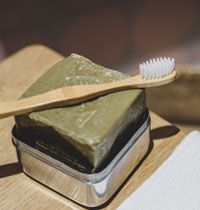
Hair care mask : For shiny and silky hair, nothing better than a natural mask with Marseille soap. I melt the equivalent of 2 tablespoons of Marseille soap. In the microwave or in a bain-marie. I book. I add the same amount of sweet almond, olive and wheat germ oil (2 tablespoons). I then add an egg yolk and mix vigorously (ideally with a whisk). Once your shampoo is rinsed, dry your hair well. Apply your preparation to the lengths of your hair (avoiding the roots). Leave on for 30 minutes then rinse.
Teeth care : Some people brush their teeth with Marseille soap. Being antiseptic and healing, it purifies the mouth, prevents the formation of cavities and tartar, while stimulating the gums. However, be careful not to swallow it! Wet your toothbrush and rub very lightly on the green Marseille soap as if you were putting toothpaste on the brush (it is better to add a little if it does not lather enough on the teeth). Brush your teeth then rinse them with clean, cold water. After each wash, we advise you to clean the toothbrush thoroughly with green Marseille soap before drying your toothbrush in the open air. The same goes for cleaning your dental appliance, by brushing it carefully with Marseille soap.
Presented in liquid or solid form, Marseille soap will find its place throughout your home: bathroom, laundry room, kitchen, toilet, etc. In liquid form, the pump bottles allow you to precisely dose the soap, without waste, without getting dirty and without it slipping through your hands! Composed of coconut oil, palm oil and scented with essential oils, this soap is labeled Nature et Progrès.
For the maintenance of all your surfaces, Lerutan Marseille liquid soap products are the universal multi-purpose cleaner for washing linen, floors, work surfaces, etc.
In solid form, presented in cubes, genuine Marseille Authentique la Corvette soaps are made in Marseille using the traditional cauldron cooking manufacturing process. A true guarantee of quality for this soap that has been copied many times, but never equalled. Can be used for personal hygiene or as a cleaning product, for laundry or the home. You will also find it in the form of shavings. Incorporated into your homemade cleaning products, they are perfect for gently washing your laundry or for cleaning all your surfaces, your floors, your dishes, etc. These real Marseille soaps are palm oil-free, dye-free, perfume or preservative.
Access detailed information sheets for our Marseille soaps.




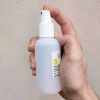
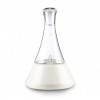
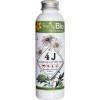
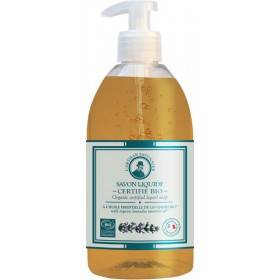
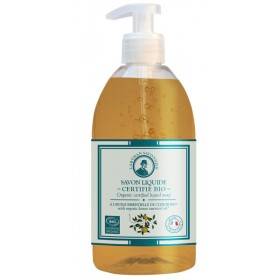
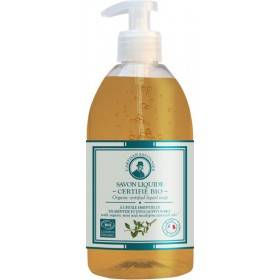
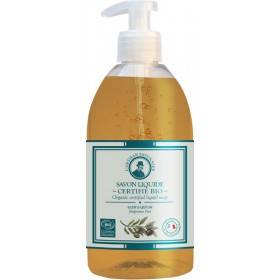
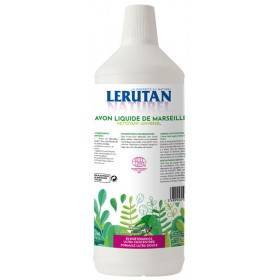
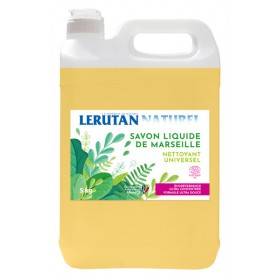
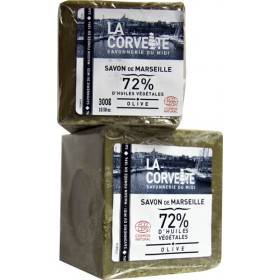
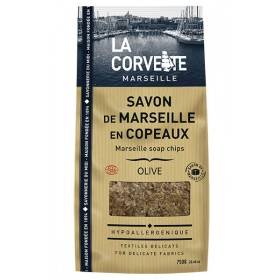
Customer reviews
Les produits sont de bonne qualité. Leur prix est raisonnable. Ils sont livrés rapidement, et en bon état.
XX
Toujours très bien et parfaitement emballé ! Merci<br />
Valérie
Merci pour l'expédition de la pièce de verrerie qui a été recu cette fois sans casse. Meilleures salutations et à très bientôt sur votre site pour un prochain achat .
Louane
J'ai toujours été satisfaite de mes commandes chez Penn'ty bio. Rapide efficace. Surtout les caractéristiques des produits est claire et complète. et le site contient beaucoup d'informations sur les différentes gammes. Merci pour votre travail et votre activité.
XX
Maryse
THIERRY
Excellentes prestations. Les produits sont formidables, l'emballage aussi. Les délais d'expédition compétitifs. Je recommande vivement Penn'Ty Bio à tous ceux que l'état de la Planète pour les générations futures inquiètent.
XX
Super !
Yann
Première commande chez Penn'Ty Bio : <br /> - navigation sur le site = 5/5<br /> - préparation du colis = 5/5<br /> - Prix compétitifs = 4/5<br /> - Qualité des produits sélectionnés = 5/5<br /> <br /> Vendeur à recommander.
Gaëlle
Après la découverte des punaises de lit dans 2 chambres de notre vieille maison, j'ai trouvé votre site. le dossier m'a été très utile et je suis très contente d'avoir trouvé des produits moins toxiques que ce que proposent les autres sites de vente.<br /> Je vous remercie d'avoir répondu à mon mail car c'est un peu l'affolement quand on découvre chez soi des punaises de lit.
Françoise S.
Au fil de mes commandes (j'en suis à la 5 ou 6ème) décidément, du sérieux et de l'écoute ! chaque fois que j'ai eu un petit problème: contact immédiat, réponse immédiate, et tir rectifié illico ! Dans le top 5 de mes sites internet !
Vincent
Livraison ultra rapide, bien emballée. Produits au top. Parfait !
Caty
Livraison très rapide. Notice livrée avec les produits ainsi qu un petit mot très agréable. Produits très efficaces, avec de l huile de coude, on en vient à bout. Le produit concentré nous a permis de tout éliminer. Par précaution, nous avons tout de même utiliser le spray. Dans une pièce, nous avons utilisé le fumigène. Pour les animaux, la mousse semble efficace. Dans quelques jours nous ferons le shampooing et plus tard les pipettes. Mais franchement après avoir utilisé d autres marques qui ne fonctionnaient pas, nous sommes ravies et nous recommandons ces produits. Merci
Virginie C.
Merci pour votre sérieux et la réexpédition ultra rapide d'un achat non conforme (dont vous n'étiez pas responsable).
Marc
Super produits accueil plus que parfait gentillesse. Livraison au top merci beaucoup
Christiane
Service clientèle très réactif en cas de difficultés. Livraison rapide. Emballage des produits fragiles excellent. Maison sérieuse, je recommande.
Marie
Bravo pour votre sérieux. Colis reçu très vite et produits impeccables. Belles fêtes de fin d'année
Mat
Très satisfaite des délais, les produits sont bien emballés et le petit mot sympathique est fort agréable!<br />
Sylvana
Site de produits naturels et bio très bien fait, agréable et fiable. beaucoup de produits de qualité.
Anne Marie R.
Bonjour, j’apprécie depuis longtemps votre travail : la qualité de vos informations et des produits que vous vendez.
Frederic
Cliente fidèle depuis plusieurs années, je ne peut que recommander ce site. Tout est parfait. Tous les produits au top, rapidité d’envoi, gentillesse, allez y les yeux fermés vous ne serez jamais déçus.
Marité 06
Marie Aline Roux
Bravo ! je vous félicite pour votre efficacité ne manquerai pas de vous conseiller. Merci à la prochaine commande
Anthony
Livraison efficace et bon contact oral avec mon interlocutrice.
Maussane
MERCI au personnel à l’emballage !!! Ma dernière commande était super bien emballée. Elle a résisté aux (épouvantables) chocs subis pendant le transport. Merci
Veronique
colis dans les temps,emballage parfait,super accueil téléphonique pour renseignement, je recommande ce site.
ROSCO
Une boutique en ligne, sympa et très réactive. On apprécie surtout la livraison express. Pas besoin d'être américain pour livrer dans des délais de champion !<br /> <br />
Daniel de Paris
Merci beaucoup pour la rapidité avec laquelle vous m'avez fait parvenir le diffuseur.
Bichette
Envoi rapide, emballage au top, continuez comme ça... :-)
bruno b.
2 commandes à mon actif et jamais déçue. Vous avez gagné une cliente régulière :) Merci pour votre sérieux et le contenu bien rempli de votre site ! c'est super d'avoir une description hyper détaillée de chaque produit.
clara
Je suis ravi de trouver les produits de qualité et d ‘efficacité incomparable.
Denitza K.
Très satisfaite. Merci.
CM
Merci et bravo pour la qualité des produits et du service toujours aussi efficace et performant.
Annick P.
Livraison très rapide et produits intacts à l'arrivée grâce à un emballage impeccable.
Etta
Je viens de recevoir la pastille noire aujourd'hui et je vous remercie de votre envoi gratuit (ce qui est rare de nos jours).
Laurence
Site clair, envoi rapide, marchandises bien emballées, et un petit mot charmant!
SM
livraison impeccable, produit bien emballé et correspondant au descriptif, excepté pour la surface de diffusion, ma salle principale doit faire 25m2 maximum et ça ne se diffuse pas au-delà.
Pascale
Service au top !!!<br /> Colis reçu très rapidement avec un petit mot manuscrit me remerciant de ma commande et de la confiance que je leur ai témoigné <br /> Suffisamment rare pour être signalé <br /> Je vous encourage toutes et tous à les soutenir en passant commande chez eux!!!!<br /> Longue vie à Penn’Ty Bio !!!!<br /> Ils le méritent
Pierre-Steph
Merci d'être à l'écoute pour notre terre et vos clients. Encore une fois je suis très satisfaite de ma commande. Et mes compagnons à 4 pattes sont ravis de se protéger en bio. Merci pour votre attention manuscrite en fin du bon de commande..
Raymonde julie L.
Excellent service après vente après un problème d acheminement de colis par la Poste. Une relation client de très grande qualité. <br /> Cordialement,<br /> <br />
PV
Commande bien reçue;je suis tout à fait satisfaite;à bientôt
Sonia
Bonjour Sophie & QUENTIN, Merci pour votre petit mot. . . . Ça fait chaud au Cœur de voir qu'il y a encore des Gens Comme VOUS sur cette planète ! Le monde devient de plus en FOU ! ! ! Cordialement.
Dominique T.
sérieux
XX
Juste un petit mot pour vous remercier de votre disponibilité et pour vous dire également que je suis très satisfaite des produits que j'ai acheté, ils sont vraiment efficaces.
Barb.
Livraison très rapide; Tout était parfaitement emballé. Je referai appel à vous.
JV39
Excellent service et livraison rapide. A conseiller pour la santé des animaux (chiens et chats)
MICHEL
J'apprécie les services de Penn'ty bio. Un maximum d'étoiles pour eux.
Ch. D.
Alex
Sophie. A
J'adore ce site qui fait un vrai travail de sélection de produits que je ne trouve pas ailleurs et sur une large gamme. Je recommande.
Veronique G.
Livraison conforme et rapide. Les produits sont emballés dans des emballages recyclables, voire compostables : j'ai beaucoup apprécié. Je recommande ce site.
Patrick
Un accueil téléphonique très agréable et de très bons conseils. <br /> Merci à vous.
XX
Toujours impeccable, les produits, les services. Depuis que j'ai changé de facteur, plus de soucis. (Ça n'est arrivé qu'une fois!!!)
XX
Très bon site avec de très bons produits et un soin particulier apporté à la préparation de chaque commande... De plus, Sophie et Quentin prennent la peine d'écrire un petit mot de remerciement avec la commande envoyée....c'est peu commun mais très sympa....:-)
STEPHANE P.
Super produits, envoi rapide et soigné, conseils et échanges courtois ! Une jolie boutique en ligne pour acheter en toute confiance ! <br />
Patricia
fiable et de bonne qualité pour les services et les produits :)
XX
Parfaitement parfait, je ne me fournis que chez Penn'ty bio depuis qu'ils m'ont débarrassée de punaises de lit.<br />
MARIE CLAUDE G.
Très contente d'avoir découvert ce site internet ! Du conseil jusqu'à l'achat c'est super. J'étais très embêtée après l'apparition de petit insecte chez nous (des anthrenes) et c'est le seule site internet e-boutique qui a pu nous renseigner dessus et enfin indiquer les produits pour les éradiquer sans pour autant nuire à notre santé (mais en respectant les conseils d'utilisation bien sûr). J'ai reçu ma commande rapidement, et avec surprise un petit mot de remerciement personnalisé avec mon nom dessus. Des détails qui au finale font la différence. Un service de qualité rien à dire. Merci !
XX
Commande reçu très correcte, très bon matos, encore merci et bonne continuation.
Dominique et Monique A.
Très contente de vos produits.
nathalie G.
Très satisfaite.
Louise
bravo pour votre réactivité et la qualité des produits
Annick P.
Client depuis de nombreuses années, je suis satisfait à la fois de la boutique et de pratiquement tous les produits achetés.
Jean-Claude
Très bien, je recommande cette boutique
Salomé
Cliente depuis plusieurs années, j'apprécie toujours ce site. Meilleures salutations.
France
Site de grande qualité !
Rose Anne Marie
Excellents services, très serviable
XX
Parfait.
Philippe
Je vous remercie beaucoup de m’avoir fait profiter d’un acheminement par Colissimo alors que rien ne vous y obligeait, sauf votre conscience professionnelle, chose rare de nos jours et qu’il ne faut jamais manquer de souligner.
Cécile
Livraison rapide , le tout correspond à mes attentes.
Julie
Client depuis des années Produits de qualités et surtout qualité de service.
XX
Les produits commandés sont conformes à mes attentes. Quant à l'accueil au téléphone, il est parfait et nous avons toujours trouvé un terrain d'entente. Je fais confiance à Penntybio.<br /> Merci.
XX
Boutique sérieuse. Commande arrivée très rapidement. Merci pour votre gentil mot avec la facture.<br /> <br /> <br />
I Defoy
Excellent site d'achat. Très rapide et que de bons produits.
James
Livraison très rapide et produits bien emballés.
Catherine
Parfait! Préparation et expédition de la commande hyper rapides. Emballage très soigné (j'ai acheté un produit fragile). <br /> Je suis très satisfaite!
Elise M.
Tout etait parfait, produit,prix,delai<br />
Marco
Très satisfaite de ma commande. Emballage soigné et envoi rapide. Merci beaucoup pour votre professionnalisme !
Sophie
Livraison express. Colis toujours aussi bien préparé (cales, flocons, adhésif sur les bouchons qui risquent de couler). Bravo pour votre professionnalisme.
Isabelle
Prix intéressants. Expédition super rapide à bon prix. Et tout ça de façon agréable !
Alexis M.
Commande bien reçue. Je suis tout à fait satisfaite. A bientôt.
Tania
je viens de réceptionner ma commande. Tout est ok. Merci pour ces produits respectant l'environnement et l'être vivant.
Anatole
Pour ma part j'ai été satisfaite de la réalisation de ma commande et du délai de livraison. Je recommande votre société.
Nelly
Merci pour le geste commercial, et aussi pour les nombreux conseils et l'excellent service client.
Tristan L
Noëlle G.
Très bon site. Envoi rapide. Prix moins cher que sur d autres sites. Bravo et bonne continuation.
Camille
Un grand merci pour votre offre et votre professionnalisme. Pour un service en ligne, vous savez vous rendre proche de nous. Bravo et "suerte" !
Pierre M.
Envoi rapide et soigné. Emballage ecoresponsable. Je suis ravi d’avoir trouvé des pièces de rechange pour les diffuseurs à huiles essentielles!
Ina L.
Un grand merci pour cette commande envoyée très rapidement. Je recommanderais votre site
Elise
Je voulais non pas faire une réclamation; mais vous féliciter pour vos produits que j' ai bien reçue, et également pour la rapidité de votre envoi ce qui est plutôt rare dans d'autre site.
Jérôme
Parfait ! Envoi rapide et produits de qualité. Merci pour le petit mot. Je suis très satisfaite !<br />
Julieanaïs
Hyper cher :: très déçue du prix par rapport à la quantité de produit acheté. Sur le site internet, les flacons semblent grands, or pour 80 euros je me retrouve avec 4 flacons de petits produits insecticides... trop cher
xxx
BIEN,CONTINUEZ COMME çà.
XX
Tout va bien. Bonne année 2021.
Bernadette M.
super emballage écolo...bravo !
Isa
J’ai bien reçu mon colis et vous remercie de votre rapidité. Bravo pour le geste écologique et durable. Emballage nickel ! Et mon chat a adoré jouer avec les billes jaunes !
Anouk
Franchement, Penn'ty bio, c'est top ♥<br /> Quentin est super réactif, de très bons conseils. Encore merci de votre efficacité.
Hélios ☼♥
2 commandes à mon actif et jamais déçue. Vous avez gagné une cliente régulière :) Merci pour votre sérieux et le contenu bien rempli de votre site ! c'est super d'avoir une description hyper détaillée de chaque produit.
Magali
Envoi rapide. Rien a redire.
Marie France
Everything was very nice ! Keep handling your customers likes this!
xxx
très satisfaite de ma commande site vraiment sérieux livraison soignée et rapide ,les articles sont conformes a la description,je suis enchantée et recommande vivement
Marie Viviane C.
Service de qualité, suivi rigoureux, et rapidité au rendez-vous. Les produits sont très fidèles à leur description et pour un coût serré. A recommander fortement.
JACKY
Comme toujours service "au top" réactivité, qualité produits... BRAVO et merci pour la qualité de votre travail
Annick
Rapidité de traitement et petit mot avec le colis très appréciable.
XX
Totalement satisfait. Les produits sont super efficaces et tout est très bien suivis. Je recommande vivement ce site.
Stéphane N.
Commande reçu en 2 jours, impeccable. Tous les produits emballés avec le plus grand soin, petit mot personnalisé! Et encore un petit savon bio au parfum délicieux comme cadeau!! Merci Penn'Ty Bio !!
Orchidée
J'ai découvert ce site en cherchant de la terre de Diatomée. Livraison rapide. Très sérieux. J'ai mis la page dans mes favoris car j'ai repéré d'autres produits.
Isa
Bravo ! je vous félicite pour votre efficacité et ne manquerai pas de vous conseiller.
Nicolas
Mon avis sur penntybio, très bon produit sur ce site pas une gamme monstrueuse mais que du très bon, et pareil pour les livraisons ultra rapides et le excellent sav si besoin. Je recommande vivement. Client depuis 2018 aucun soucis.<br /> <br />
thierry g.
Merci pour votre envoi : rapidité, ponctualité, information de suivi du colis etc. Vraiment du bon boulot.
E.G
Merci pour votre geste que j’apprécie.<br /> Cela fait plaisir de retrouver l’esprit commerçant de proximité chez un vendeur en ligne. Je surveillerai attentivement cette nouvelle livraison.
Philippe
livraison rapide ,prix raisonnable , produits super efficace j'ai vite calmé mes douleurs lombaires ...enfin soulagée . Merci pennty bio
JEANNINE
Très bon produit facile en entretenir, pas cher.
XX
Je vous remercie pour vos services. C'est très agréable d'être informé de la sorte.
Anthony
Très rapide pour la livraison en Belgique et sérieux. Merci<br />
Corinne
Bon service et bon produits
Odile R
Ravie de découvrir un site qui présente des produits de qualité avec une vraie démarche éco responsable à des tarifs intéressants.
XX
Site sérieux, proposant de bons produits, efficaces en particulier sur les punaises de lit, fléau actuel. Merci car entre les produits et les housses de matelas nous avons réussi à les éradiquer dans deux maisons à deux ans d intervalle. <br /> Bravo aussi pour la livraison la plus écologique possible.
L.C
Très bon site, très sérieux je recommande, produits de qualité et service après vente au top, de plus livraison des plus rapide et produits très bien emballés, tout est parfait
virginie
Efficacité de la livraison , très rapide . Produits livres en parfait état . Très bien emballés . Merci.
Geneviève
très bien livraison dans les délais, colis intact, bon produit.
Martine
C'est la deuxième fois que je commande sur ce site. J'ai découvert qu'il existait des verreries aux dimensions différentes. Mon diffuseur étant ancien, j'ai chercher le modèle le plus adapté et j'ai trouvé! Mon diffuseur fonctionne à nouveau
Christiane D.
Livraison rapide et fiable, dès que le chèque a été reçu. Produits de bonne qualité.
Chantal H.
Site sérieux. Bons produits.
Magali
Penn' Ty Bio, c'est ma référence depuis 10 ans au moins. Je ne commande mes produits de toilette et d'entretien que chez eux. Les marques et le service est irréprochable.
GAELLE
Très bien...merci.
Olivier
SATISFAITE
ANNE
De très bons conseils, une livraison rapide et des produits de qualité !
Fabienne P.
Juste un petit mot pour vous remercier du message accompagnant mon colis ! Je croise les doigts pour que les produits marches mais entre-temps, je voulais vous remercier et en profiter pour vous souhaiter à mon tout un joli printemps.
Rose B.G
Je tenais à vous remercier pour la commande que je viens de recevoir ce matin. Merci beaucoup et je n'hésiterai pas à recommander sur votre site.
Sandrine
Hélène
Très bien !
XX
Vos explications par email ont été très claires et votre diligence dans le traitement de ma commande et de mes demandes est très appréciée.
Henri
Livraison rapide et très bien emballé et protégé. Très bonne efficacité. <br /> <br />
XX
Excellent!! Commande passée le lundi, reçue le mercredi!!! Les produits sont en plus de super qualité !
MADELINE
Très bons produits efficaces.
XX
Je suis une amie de vos parents et suis toujours très satisfaite de tous vos produits. Ne changez rien et bonne continuation.
Marité D.
Livraison très rapide. Bravo pour la réactivité
François
Très satisfaite, merci.
Christine
Parfait comme d'habitude
Sylvain
Un grand merci pour la qualité et la rapidité de votre réponse.
Tony
Produits performants. Très satisfaite de vos services.
XX
Sav rapide et disponible. Au top
Severine
Parfait. Rien à redire. Extrêmement efficace.
Quentin
Bon rapport qualité-prix. Envoi rapide et sécurisé !
Chrile
Je suis vraiment très satisfaite de la prestation de ce fournisseur : délai de livraison très rapide et emballage des produits réalisé avec un maximum de soin. Bravo !!
Eliane
Bonjour, colis bien emballé arrivé sans encombre, démarche écolo bien ancrée et petit mot perso. Merci à l'équipe de Penn'Ty Bio.
Sofi
très bons produits et service commercial très performant, continuez sur cette voie, merci.
Annick
Cliente depuis plusieurs années. Super service, réactif, cordial. Les produits sont excellents.
Christine
Commande et livraison rapides!<br /> Rien à dire, c'est parfait !
Christine
Quel dommage pour le produit manquant, je vous remercie pour le remboursement.
Didier
Merci pour cette première commande, envoyée très rapidement, et dans un petit colis, avec frais de port très raisonnables.
Valérie O.
clair net précis. merci
jannick
Félicitations pour la qualité de votre site & la valeur de ses informations ! Continuez ainsi ! On a besoin de vous !
Ronald
Très bon produit juste ce qu'il faut à prix attractifs Envoi rapide.
xx
Bon choix, bons conseils et service livraison très rapide. J'aime faire mes courses sur ce site.
FDA
Pas encore essayé le produit, mais le site est très sérieux. Livraison dans un temps éclair, même si je suis en Belgique. Emballage soigné. On peut faire confiance.
Roberta
Produits d'excellente qualité, arrivés rapidement, et conformes à leurs descriptions.
Michelle G.
Très bonne adresse où l'on trouve des alternative aux produits chimiques notamment contre les insectes. Le service client est également de très bons conseils.
ck
Site pratique, compétent, prix corrects. Un envoi très rapide, et je dirai "parfait".
Greg
fidèle cliente de Penn'Ty Bio, je ne me fournis que chez eux.
XX
Merci pour votre démarche si respectueux de l’humain, des animaux et de l’environnement !
A.F
livraison tip top tant en temps et en qualité.
XX
Tout est parfait à chaque fois. L'attention portée va même jusqu'au petit message, c'est agréable. Fidèle aux produits et au site plus que jamais.
xx
Très bien ! envoi rapide et conforme à ce qui est annoncé.
Jacqueline S.
Merci à tanteOdile pour m’avoir fait découvrir votre site. Depuis je suis une cliente assidue. Très satisfaite de la rapidité des envois, de la qualité de vos produits qui sont par ailleurs très bien détaillés par leur composition et leur mode d’emploi. Une amie vous a rejointe également avec la même satisfaction <br /> Continuez.
Marité D.
La livraison est rapide, je n'ai jamais était déçue de ce site, et les produits sont pas chers et de très bonne qualité!
Patricia
Produits de bonne qualité, naturels et efficaces, expédition rapide et bien emballée, sav très rapide suite à une erreur de ma part,
XX
Site intéressant. Je l'ai découvert, en fait. Produits ménager éco-responsable. Bon pour la maison et non agressifs. Merci.
Mydiadao
Une grande compétence, Monsieur Dufil est très professionnel et sait soigner ses clients. Quand à la gamme de produits proposés, elle est parfaite et complète.
Alain A.
J'ai bien reçu le colis sans aucun problème. Merci pour la rapidité et le sens du service.
Nicolas
accueil téléphonique personnalisé réactif compétent et bienveillant, livraison rapide et conforme. BRAVO merci pour la qualité de votre travail
Annick
Service très réactif, emballage soigné , livraison rapide. <br /> Rien à redire . Continuez !!
Sophie
Livraison rapide et soignée. J'utilise les produits bio qui sont de très bonnes qualités. Un savon m'a été envoyée par erreur à la place de celui commandé et il m'a été remplacé très rapidement. Bravo pour leur réactivité. Je recommande fortement ce site.
Liliane
Service très professionnel et très rapide. A conseiller fortement.
Didier M.
C'est extrêmement délicat de votre part d'avoir fait diligence. Je ne manquerai pas de recommander votre site et de souligner votre gentillesse. Encore merci
Michel
Rapidité, emballage nickel et écologique, mot de remerciements personnalisé, produits au top....j adore....je suis une nouvelle cliente conquise. Un grand merci...
Hélène P.
Contente de voir que d’autres alternatives naturelles aux produits plus nocifs soient proposés. Entreprise sérieuse dont commandes sont très bien honorées. Merci.
Capzoe
C’est la première fois que je commande sur ce site et pas déçue livraison rapide de ce produit que l’on ne trouve pas partout. Je recommande
Patrick
Très satisfaite. Je recommande cette société sérieuse. bon suivi de la commande.
Sandrine
Bon produit , envoi rapide.<br /> <br /> <br />
Christine
service très efficace à chaque fois que j'ai commandé. aucune mauvaise surprise sur la livraison. je recommande
Agnès
J'ai bien reçu ce jour, en bon état, les 2 diffuseurs galets. Merci aussi pour votre petit mot manuscrit me souhaitant un bel été. Fidèlement,
Annie
Fiable, et très bons produits , Service après vente efficace et sympathique.
Vilma V.
J'ai bien reçu mes articles et je vous remercie pour la livraison rapide et impeccable !
Françoise
Merci beaucoup pour votre rapidité et votre professionnalisme.
Julie
Excellents produits. Excellent service.
James T
Je voulais juste vous remercier. J ai reçu mon répulsif " lézards" aujourd'hui, un petit mot super gentil joint à ma commande ça fait plaisir. J espère que ça va fonctionner. Bonne journée à vous et merci.
Cynthia
Bonjour <br /> C'était ma première commande sur votre site et j'en suis très satisfaite <br /> Je vous remercie pour votre professionnalisme (site, prise de commande, livraison) ainsi que pour le petit mot qui rend le tout humain. Très belle journée.
CG
J'apprécie depuis de nombreuses années la qualité de vos produits et le sérieux de votre site. Une petite mésaventure avec un diffuseur me permet de vous féliciter pour la réactivité de votre SAV. Bravo !
Thierry G.
Après essais de divers produits, votre insecticide 4J est le seul à être venu à bout des puces ramenées par le chat de la maison. Livraison rapide par chronopost
JEAN MARIE
Super, livraison rapide, suivi très rigoureux, site de confiance, très sérieux à recommander... Merci pour tout.
Bernard
Envoi rapide et soigné, produits efficaces et réponse rapide à mes questions. Je recommande.
xx
Livraison rapide et avec colis préparé avec soin :)
Florian
Ma commande s'est déroulée sans aucun problème avec une livraison rapide et soignée. La satisfaction est au rendez-vs ! Continuez ainsi ! Merci et cordialement !
Etoile 07
Efficace rapide et à l'écoute. Diversité des produits. Efficacité des produits. Respect des délais de livraison et prise en compte des spécificités client PMR ( ce n'est pas toujours le cas). Site bien fait pour navigation et produits bien mis en valeur. Des promos et des bons de réduction cumulés en fonction des achats. Merci pour votre efficacité rapidité et professionnalisme.
xxx
Excellente réactivité !!! Produit en stock, commandé le 23 dec à 8h30, recu le 24 dec à 9h30. On peut guère mieux faire ! Super communication avec le vendeur.
Xavier
J’ai bien reçu le nouveau diffuseur fonctionnel après essai et je vous remercie pour votre confiance et votre rapidité sur le traitement de mon problème. Ce n’est pas tous les jours que l’on voit un SAV aussi efficace !
Florent
Merci. Je tenais à vous faire part de ma grande satisfaction. Je suis enchantée par les produits et par le service. Salutations et bonne continuation,
Odile
Commande passée le jeudi soir, colis livré chez mon "commerçant-relais" le samedi matin. Quelle rapidité ! Du vrai professionnalisme !
Emeline
1ère commande. Très satisfaite : Colis expédié très rapidement et bien emballé. Merci pour votre sérieux.
Ghyslaine
excellent.
XX
Un diffuseur plus de 80 M², avec huile essentielles eucalyptus, vraiment formidable, on respire mieux et çà sent super bon. Le matin 1 heure, et le soir 2 heures. De jolies couleur, et pour les fêtes une jolie ambiance. Bravo.
PATRICK
Diffuseurs qui sortent vraiment de l'ordinaire, un envoi parfait - merci BCP
Anthony
super contente, j'y trouve facilement les produits dont j'ai besoin et le service est impeccable et gentil !
Hélène S.
Merci beaucoup pour l'info, c'est rapide chez vous, très appréciable!
Denis
Juste ce petit mail pour vous dire que j'ai bien reçu votre colis et que mon patron est enchanté ! Ca embaume les huiles essentielles dans le bureau et... ça ne fait pas de bruit ! Encore un grand merci pour votre gentillesse et votre souplesse commerciale.
Sonia
Excellent site. Très à l'écoute. Livraison rapide. Problème avec un piège à guêpes un autre m'a été livré très rapidement. Chapeau et très agréable de tomber sur des gens compétents.<br /> Encore merci.
XX
Livraison rapide et bien emballé. Petit message manuscrit qui fait plaisir :)
xx
Personne disponible, de très bon conseil suite à des punaises de lits dans mon habitation, les produits sont efficaces car depuis aucune punaises et la vie à repris son cours ... merci pour tout
Nathalie
J’ai découvert cette société en faisant une recherche sur Internet pour trouver un insecticide contre les sclérodermes. Je ne peux pas encore juger l’efficacité de chacun des produits par contre je suis très satisfait de la rapidité et de la qualité d’expédition, ainsi que du sérieux de la société. J’ai même reçu un petit échantillon est un mot personnalisé j’ai trouvé ça très sympa! Merci beaucoup et bonne continuation pour votre société que je recommande déjà.
BJ79
Site très sérieux, de très bons produits et la livraison est rapide.<br />
Isabelle
Envoi très rapide, personnalisé et soigné. Merci
XX
Livraison rapide et petit mot manuscrit joint au colis, vraiment très sympa! Merci et continuez, vous le méritez.
Jean-Pierre
L’esprit commerçant de proximité chez un vendeur en ligne !
Philippe
Merci beaucoup le colis est arrivé à la poste hier et je te retire aujourd'hui Merci pour votre efficacité et votre rapidité
Ingrid
Bon produit, efficace et laisse une odeur plutôt agréable. Expédition rapide, emballé avec soins. Je recommande
Mary
Très bon site. Navigation facile. Les commandes sont expédiées rapidement comme annoncé. Aucun problème depuis que je suis cliente. Je recommande Penn'ty bio.<br />
Elvyne
Entièrement satisfaite.
Ch. D.
Bon site, fiable, rapide et efficace.
Leo L.
J'ai passé ma première commande, chez vous il y a trois jours à peine et ce matin, je reçois mon colis.
Sophie
Commande bien reçue . Je suis très satisfaite Merci pour votre sérieux
LILIANE
Dommage, les vendeurs ne savent pas lire les indications inscrites sur les produits qu'ils vendent
XX
Claudine
Dimanche soir, invasion de vrillettes du pain. Lundi matin, commande en urgence des produits verts adéquats. Mardi, livraison, traitement et fin de l'invasion.
Jean-Pierre
Je me permets de vous écrire un petit mot afin de vous dire que votre site est très bien fait.
Tom
Un super magasin en ligne, avec plein de produits disponibles.<br /> L'envoi a été très rapide et soigné, avec une très bonne communication à chaque étape. Bref, une adresse à connaitre et à garder ! Merci !
Pab57
Comme d'habitude, envoi soigné, produits performants, Merci.
XX
MOI JE DIS INCROYABLE !!!<br /> Plus que mieux d'une rapidité de dingue ! bravo et le colis impeccable surprotégé.<br /> Que toutes les entreprises prennent exemple sur vous. merci
AURELIE A.
Site intéressant proposant de bons produits, attractifs et respectant la nature. Le regret c'est le prix de certains articles.<br />
Catherine
C'est ma première commande chez Penn'Ty Bio, et ce ne sera pas la dernière.<br /> J'étais à la recherche d'un nouveau diffuseur d'HE et, après discussion avec Quentin, mon choix s'est arrêté sur l'Elixia (Direct Nature) qui est d'une efficacité redoutable et d'un silence absolument surprenant.<br /> La livraison s'est faite en 72h en point retrait avec un conditionnement hyper sécurisé.<br /> Lors du déballage, j'ai constaté un léger défaut de finition sur la verrerie.<br /> J'en ai fait part à Quentin par texto avec photos à l'appui.<br /> Il m'a aussitôt recontacté pour me proposer un envoi d'une nouvelle verrerie dès que disponible.<br /> Un professionnalisme et un sens du service exemplaires qui font de cette enseigne une valeur sûre.<br /> Penn'Ty Bio est vraiment la boutique en ligne qu'il vous faut connaître.<br /> Je vous la recommande vivement.
Jean-Yves S.
Pennty Bio? Einfach genial. Super rapide , bon produits, super service-livraisons. Je vais recommander bientot =)
xxx
Impeccable.
Christine
rien a redire, sauf, le montant des frais de livraison, un peu élevé.
XX
Commande reçue assez rapidement. Merci pour votre sérieux.
Émilie
Commande reçue rapidement, frais de port raisonnables pour expédition à l'étranger et les produits sélectionnés au top! Merci!
Cédric Adolphe B.
produit parfait.
René
Les produits achetés sur le site sont de très bonnes qualités, et j'ai été très bien conseillée. Je recommande !
Aurore
Service rapide et efficace. Bons produits
XX
Très bons produits je les recommande.<br /> Merci à Pennt'ty Bio pour tout, aussi bien pour les commandes et les emballages.<br /> Bravo Pennt'ty Bio.
Bernadette G.
interressante. Beaucoup d'articles référencés. Après pour la lutte contre les punaises de lit, je ne suis pas sure de l'efficacité de certains produits. C'est un vrai fléau ces bestioles.
Francelyne D.
J'ai reçu le colis, merci beaucoup de votre promptitude et bonne continuation.
Louise
J'ai enfin reçu le petit colis, hier. Il a mis un mois pour me parvenir, mais vous n'y êtes absolument pour rien, comme je le pensais, il a été mis de côté lors de la grève nationale. Je vous remercie d'avoir fait faire des recherches, j'ai reçu un mot de la poste.
Hervé
Tout est parfait de la commande à la réception. Commander jeudi et reçu samedi. Et très contente de mon achat . Je recommande
Nadege M.
Excellent article sur les diffuseurs d'huile essentielles ! grâce à lui j'ai pu faire mon choix basé sur une excellente analyse de votre part !
Laurence
Produit conforme aux attentes.<br /> <br /> <br /> <br />
Alain
Commande tout à fait conforme et emballée avec grand soin.
Sarah
Excellent site rapide et efficace. Descriptif intéressant.
XX
Bon produit mais frais de port un peu cher.
Marie Paule
Client depuis plus de 10ans. Toujours satisfait du matériel propose. Boutique sérieuse prix compétitifs livraisons et suivis rapide.
XX
Livraison rapide et produit conforme à la description. J'approuve à 100% le principe du recyclage des éléments d'expédition. Un produit fabriqué une fois soit avoir plusieurs vie. Bravo pour cette initiative.
Christophe
Content des produits achetés, reçu rapidement et bien emballé. Merci.
XX
Bien, la majeure partie des produits sont efficaces. Je connais cette boutique depuis plusieurs années, je recommande ce site.
XX
Très satisfaite par Penn ty bio. En effet, suite à un produit défectueux ( housse matelas) , j'ai aussitôt reçu un bon de retour pour renvoi gratuit en colissimo et ai reçu la nouvelle housse dans les 48 h, avant même le renvoi de la première housse. Merci pour la réactivité et la confiance de cette entreprise.
dominique B.
livraison rapide, produit conforme.Prix séduisant.
XX
JM
Avec les trois lettres BIO dans votre nom, je ne m'attendais pas à découvrir des billes de polystyrène comme matériaux de rembourrage. Il y a certainement plus écolo !
Michel D.
Bon produit. Merci Penn'Ty Bio. Un seul passage dilué à 5% et les puces ont disparus. Il en restait deux ou trois qui ont dû se perchés pendant le traitement mais sinon c'est performant.
Axel
Beaucoup de soins dans la commande reçue. Je recommande!
XX
Site très sérieux et personnel vraiment agréable. Envoi rapide. C est parfait !
Ingrid
merci pour le suivi de ma commande et les mails par lesquels vous m'avez tenu informée.
Zoé
Site très réactif livraison rapide le produit Stop tique et puce est parfait sauf le pulvérisateur.
Danielle B.
Très bien , bon produits, La prochaine commande avec plaisir, livraison très rapide.<br />
Rainer
j'ai reçu mon colis aujourd'hui, merci c'est très rapide et sérieux.
Clara
Produits utilisés depuis très longtemps, toujours la même qualité ! Je recommande, les délais de livraison sont très courts, produits très efficaces.
Laurence
Merci à Penn'ty bio d'avoir garder beaucoup de produits de la marque Lerutan et pour le sérieux dans la préparation et l'expédition des colis. Je recommande.
SR
Rapide, sérieux et qualité, produit correspondant à la description, très contente, je recommande votre site et vos produits.
Corinne
Grande gentillesse et efficacité : que demander de plus ? Merci !
Chantal M.
Suite à un précédent message notifiant une erreur de produit à la livraison, Penn'Ty bio m'a fait parvenir à titre gracieux le bon produit. Merci
Martine
Très satisfait de Penn'Ty Bio : choix étendu,prix raisonnables délais de livraison rapides.
xx
Modèle conforme bien emballé délai respecter continuer comme ça parfait.
Carlos
Toujours satisfait et pour les prix et pour les produits.
andré a.
Jamais déçue : les produits correspondent à la description et sont livrés rapidement.
Mireille
Un grand merci pour votre professionnalisme et la qualité de vos produits. Longue vie à votre site.
XX
C'est vraiment magnifique et ce cadeau a plu, je commanderais pour Noël.
Martine
J'ai bien reçu le diffuseur et j'en suis très content.
Paul
Je suis arrivée sur votre site en cherchant un diffuseur que je viens de commander, mais je voudrais vous dire que votre site est très intéressant, bien fait. Vos dossiers sont enrichissants merci
Joelle
Bons produits conformes à mes attentes et livraison au top. Je recommande vivement.
Chantal P.
Service rapide et efficace. Et Sympathique ! toujours un petit mot, ça fait la différence. Et c'est français en plus :). Je recommande.
XX
Merci à Penn'Ty Bio pour la qualité des produits, la réactivité de l’Équipe et le petit mot attentif qui accompagne les colis. Votre site est précieux !!
Veronique B.
Toujours aussi "réactif" et efficace<br /> Bravo et merci pour votre professionnalisme.
Annick P.
Françoise
Une utilisation de vos produits a suffit pour nous débarrasser des poissons d'argent. Merci.
Matthieu
Produit de qualité conforme à mes attentes, envoi rapide et soigné, très bien.
Anne
Excellente communication, service très rapide (même à l'étranger), emballage parfait ...
Jacques N., Belgique
Bien reçu. Bravo pour votre extrême rapidité. Merci
Magali
Jean-Yves
ANNE
Très contente des produits de qualités et une commande reçu très rapidement. Merci
PATRICIA A.
J'ai été très déçue de ne plus trouver mon déboucheur dans mon biocoop habituel, et perplexe en apprenant qu'il était remplacé par un produit à base de soude...c'est comme ça que je vous ai trouvé sur internet.<br /> Alors merci pour le dépannage, pour le mot gentil qui accompagnait mon colis , et bravo pour le calage en amidon de maïs compostable!<br /> Bravo pour votre démarche et à très bientôt.
Cécile D.
Tout à fait satisfait de la qualité de la livraison ainsi que du produit commandé.
Régis
Parfait comme site, commandes faciles à faire et livraison rapide !
Cindy
Très bon site, du personnel sérieux et la livraison en temps et en heure. Merci
Marine T
merci pour votre professionnalisme. Merci pour les produits envoyés dans de bons délais. Merci pour la qualité de vos produits
Marcelle
Bonjour, je voulais vous féliciter pour la clarté de votre site, la rapidité de la livraison et la qualité de l'emballage.
catherine R.
colis reçu ce jour, merci pour le flacon offert
Andrée
Très satisfaite du produit.Rapidité et emballage très soigné.SERIEUX.
MARLENE
Satisfaction totale. Entreprise au top. J'ai téléphoné le lundi matin, malgré que les contacts téléphonique ne sont que l'après midi, une personne très charmante m'a rappelé presque aussitôt pour mes donner les infos que je souhaitais connaître sur ma commande. Bravo. nous sommes mercredi et ma commande est arrivée. Encore bravo continuez comme ça.
Jacques M.
Bon produits et service !
Rose-Marie
Je voulais vous remercier +++ pour votre gentillesse et surtout... votre compétence. C'est vraiment de l'excellent travail... j'ai été bluffée :-)<br /> Renseignement téléphonique 10/5 - produit 10/5... encore merci
Maryse
Une entreprise fiable, efficace, de confiance, chez qui je recommande de faire ses achats.
S.
Nous sommes très satisfaits du service client : mot personnalisé dans le colis, disponibilité du service après-vente... Nous souhaitons à votre société un succès croissant.
Sara
Bonjour. Je souhaite vous remercier pour votre rapidité. Le colis est arrivé en bon état . Les huiles que nous avons commandées embaument la maison. Ce diffuseur est génial.
Christian
En cette période d'avant Noël, je craignais que me colis arriverais en retard. 48h après mon achat, c'était dans la boîte aux lettres. Du coup, je suis large pour mettre mon achat sous le sapin. Merci à vous
Art4
J'ai reçu mon colis hier. Merci de vos démarches,
Sam
Je trouve l'essentiel sur le site à des prix défiants toute concurrence. Continuez comme cela.
XX
Je parlerais de vous a mes amies car vos produits sont vraiment excellents. Bien a vous et tous mes remerciements.
Patricia
Cela fait plusieurs fois que je commande chez Penn'Ty Bio et je suis toujours satisfaite de la qualité des produits et de la rapidité d'expédition. Je recommande ce site !
Ghyslaine
On ne peut pas toujours faire confiance à des sites de ventes sur le web, mais sur Penn'Tio, j' y viens les yeux fermés. Excellente communication avec le service clientèle, un suivi sérieux. Je remercie chaleureusement toute l' équipe.
Sergine T.
Site très pratique. Commande aisée. Suivi régulier. Délai de livraison respecté. Colis très soigné. Tout est parfait.
Nicole
Produits facile à utiliser, efficaces et finalement pas plus onéreux, à l'usage que des produits issus de la pétrochimie. Service livraison impeccable. Je recommande +++<br />
XX
Je ne connais pas encore tous les produits mais contente de ce que j'ai commandé. En revanche un peu cher quandmême ce qui me limite.
xxx
Service de qualité, suivi rigoureux et rapidité au rendez-vous. Mon colis est arrivé vite même avec un paiement par chèque. Les produits sont très fidèles à leur description et pour un coût serré. A recommander fortement.
Vincent
Après 2 traitements à 3 jours d'intervalle, j'ai réussi à éradiquer toutes les punaises de mon canapé. Produit hyper efficace que je recommande vivement.
Emmanuelle
Rapide, sérieux, très bien emballé, un sans faute.Merci.
L.H.
Colis très bien protégé service rapide. Merci. Site très sérieux .
Elios R.
Des produits très efficaces quand on suis dans l'ordre le traitement. Un léger petit bémol sur le spray insecticide, si possible essayer de trouver un spray plus puissant et plus large pour une diffusion optimale dans les coin et recoin inaccessible. Sinon tout est nickel est une excellente qualité de résultat.<br /> PS: Il faut prendre tout les produit pour un traitement efficace en foyer privé (maison).
Florian G.
Je suis cliente depuis de nombreuses années. Toujours satisfaite du site, des produits et de la livraison.
martine O.
Toujours parfait, livraison, emballage, délai et gentil petit mot personnel pour me remercier de ma fidélité.
XX
Super, envoi rapide,bien protégé et petit cadeau !
xx
Je suis très satisfaite de mon échange avec le service client (personne à l'écoute, de bon conseil). Envoi rapide et soigné, avec un petit mot sympathique de l'équipe, le top!
XX
J'ai bien reçu ma commande. Com' dab' , rapidité efficacité ...Merci
Sally
très bien je recommande.
Sylvie
Livraison très rapide et colis emballé soigneusement.Site à recommander.
isabelle d.
j'ai reçu mon colis aujourd'hui, merci c'est très rapide et sérieux.
Nathalie
Emballage au top. Livraison rapide et sans dégâts.
xxx
merci de votre disponibilité et amabilité!
Eric
Je tenais à vous remercier pour votre service de qualité, une livraison toujours rapide, des colis bien emballés - qui évitent fuites et casse, ainsi que pour le petit mot personnalisé joint à chaque commande, c'est toujours très agréable.
Isabelle G
Les produits achetés sont excellents. Ils répondent parfaitement à ce que je cherchais. Bravo pour votre site
Michel
Explication, commentaire et livraison en un temps record, tout était parfait, même le petit mot de remerciement écrit à la main ! Merci beaucoup
Monique S.
Colis parfaitement emballé et produits conformes. 1 des produits était très fragile et est arrivé en excellent état, merci :o) Pourquoi achetez à l'étranger alors qu'on a de si belle s entreprises en France? Tarifs identiques ou moins chers que chez Amazon ;o)
Stéphane C.
Merci pour vos conseils avisés. Et merci pour vos produits de qualité.
Loïc
Commande facile, livraison impeccable et produits fiables. Merci.
Isabelle
Livraison rapide , produits de qualité, je recommande Penn'Ty Bio.
XX
Très satisfaite de ma commande chez Penn'ty bio. Site très détaillé, produit reçu rapidement, message manuscrit très sympathique. Je recommande !
XM
Livraison toujours rapide. J'ai expérimentée le service après vente qui à été excellent avec une réparation rapide et sans frais. Je recommande vivement Penn'Ty bio
Nadine
Bons produits, emballage impeccable, livraison super rapide ! Parfait !
XX
Très bon produit, conforme à la description.
MICHELE P.
Très réactifs entre la commande et la livraison. Je suis toujours satisfaite de mes commandes soigneusement emballées !
France L B
Boutique très sérieuse avec un envoie rapide et des produits super efficaces.
XX
Envoie soigné et rapide.<br /> Merci pour le petit mot à la main.<br /> Très appréciable.
XX
Infestés de puces de parquet, le produit a agi en moins de 24 heures. Livrés en tout autant de temps. Le seul produit qui ait fonctionné et en plus archi cool pour la nature.
Nicolas
Un grand merci pour la qualité et la rapidité de votre réponse.
Simon
Produits livrés rapidement dans un colis non surdimensionné, les produits sont conformes à la description. Je recommande vivement ce site très bien fait !
Hervé
Rien à redire, de la commande à la livraison.
XX
Sav très réactif et efficace suite à avarie durant transport. La livraison du produit en remplacement du colis défectueux à été particulièrement rapide. Merci.
Valérie
Marie-Noëlle
Correspond à mes attentes
Henry
yvette
Bonjour Sophie et Quentin,<br /> Je viens de recevoir ma commande et je tenais à vous remercier pour la rapidité de l'envoi, votre gentil petit mot et le petit présent qui sent bon et donne envie. Bel été à vous deux également
Geneviève
anne-marie B.
Louise
Colis bien arrivé. Emballage remarquable. Diffuseur très joli, très efficace et peu bruyant avec de la couleur qui change. Très satisfaite de la commande.
Sabrina
livraison rapide, produits bien enveloppés avec juste un petit bémol : pour l'imperméabilisant dont le couvercle n'était pas bien fermé.
Alain
Livré hyper vite. Bravo !
Mick
Je confirme efficacité sur la préparation et expédition du matériel. un grand merci
Jeremy
J'ai été TRES bien conseillée lors du contact. Produit naturel donc c'est parfait.
Lilla
Livraison rapide, emballage plus que parfait, le diffuseur NEOLIA est merveilleux pas bruyant, fonctionnement idéal. Merci PENNTYBIO pour votre sérieux, site web à recommander.
CLAUDE
Je vous remercie de votre professionnalisme et de votre réactivité.C'est loin d'être toujours le cas lorsque l'on commande sur internet.
Gaëlle
Vos produits sont de bonnes qualités et les produits très bien emballés
Dominique
Bons produits. Fonctionnent très bien.
xx
Commande reçue rapidement, très bien
XX
J'adore. Très grande diversité de produits, les explications sont simples et complètes.Quand aux colis, ils sont extrèmement bien protéger. Un grand merci.
Nadine
Les produits ont été très appréciés par la destinataire. <br /> De plus quand on pose une question, on a toujours une réponse, un conseil très rapidement. Merci pour votre réactivité
xxx
Pennty bio prends le temps de renseigner et donne de très bons conseils.<br /> Les produits sont emballés soigneusement et la préparation des commandes hyper réactive. Je recommande les yeux fermés !
Mattloumag
comme toujours excellente réactivité, livraison très rapide et qualité produits TOP. Merci pour votre compétence.
Annick P.
Très bons produits, service rapide et de qualité, rapport qualité/prix intéressant. Je recommande vivement.
Alain
Site internet complet, beau et facile d'utilisation<br /> Commande complète et correcte.<br /> Commande emballée a la perfection avec du matériel recyclable, compostable<br /> Délai d'envoi respecté même a l'étranger (Pays-Bas)<br /> Mention spécial pour le petit mot personnalisé ++<br /> On sait pourquoi on commande chez Penntybio depuis 10ans :)<br /> Bonne continuation
Jennifer A.
j'ai bien reçu la commande et je vous remercie pour votre efficacité.
Margot
Tout est parfait : la qualité des produits, la rapidité d'expédition, la qualité du colis. Je suis enchantée et resterai fidèle à ce site.
Dominique
Envoi très rapide et bravo pour votre site de reconnaissance des insectes nuisibles.
Brice
Bonjour Monsieur,<br /> Nous nous étions parlés au téléphone il y a quelques années. Bravo pour l'évolution de votre site et vos dossiers instructifs. Vos produits aussi sont très bons. Bonne continuation, bien cordialement.
Marina
Rapidité de livraison. Très bon produits. Merci
Mélina
Parfait !
Mireille
Bravo et merci : produits de qualité et service TOP... continuez !...
XX
Produit anti puce extrêmement efficace !<br /> Le vendeur a pris une demi-heure de son temps pour m'expliquer absolument tout ce qu'il y avait à savoir sur le produit, de la composition a la mise en œuvre.. Bref au top ! Je recommande donc vivement Penn'ty !
Louis
Efficace, livraison rapide.<br /> <br />
H
Produit performant et raisonnable au niveau prix. Je recommande
XX
Un plaisir de recevoir les colis soignés et respectueux de la planète de Penn’Ty Bio. Merci
k.
Efficacité redoutable. enchanté.
Robert
Très satisfait du site livraison rapide.<br />
Michel
Merci et surtout, continuez, c'est rare de trouver sur internet une relation aussi personnalisée sur un mode aussi agréable.
Sabine
Livraison en temps record à l'adresse indiquée en France puis départ dans l'océan indien. Reception des produits en quinze jours à l'autre bout du monde : ravie. Je vous laisserai les avis produits une fois utilisés. Le site est très bien fait et très agréable à utiliser. Le petit mot à la main dans le colis humanise la transaction, je l'ai apprécié. Je pense que vos produits sont très utiles et je vous souhaite une belle réussite et sur la durée.
Sylvie D.
je vous remercie pour vos services, c'est très agréable d'être informé de la sorte. colis bien reçu Merci pour la rapidité de la livraison
Bernard
Jean Claude
Livraison rapide. Produits bien emballés.
Bruno
Fidèle à votre marque, je tenais par ce mail à vous féliciter vous et votre équipe pour votre longévité. Votre marque est toujours gage de qualité et sérieux.
Céline
Merci pour tout le soin que vous mettez pour une livraison individualisée, chaleureuse et aussi peu impactante que possible sur l'environnement !
Sandra
Merci pour votre efficacité et votre gentillesse, commande, livraison, petit mot agréable, tout était parfait !
Sylvie
Super efficace !!!
xx
trés satisfaite de ma commande,( produit, et livraison,rapide ) MERCI
Danièle M.
Après un souci sur l’article livré, le site a fait preuve d’une excellente communication (simple et efficace par sms) qui m’a permis de me faire livrer un 2nd article par la marque très rapidement. Parfait !
Pierre
Leave a review | See all